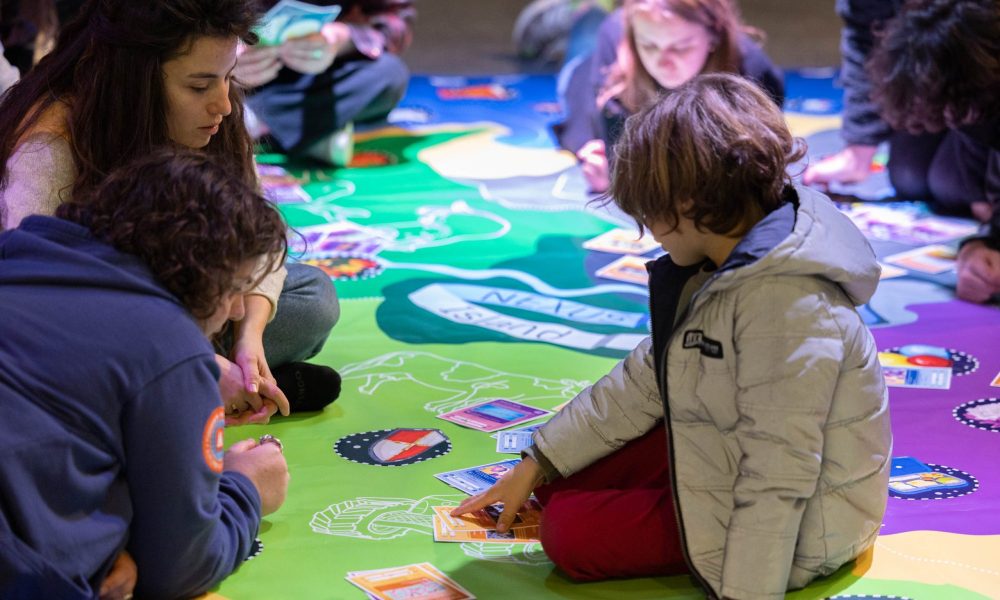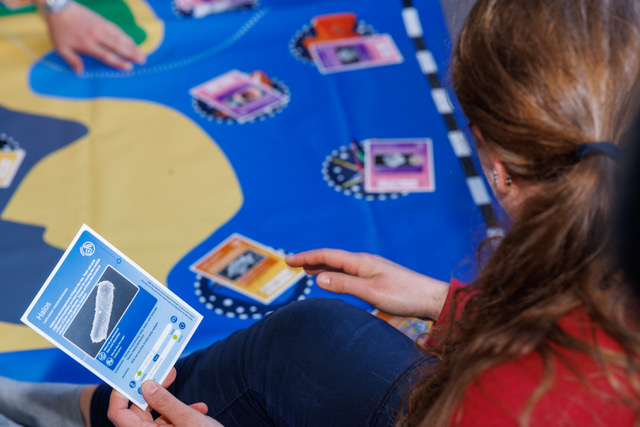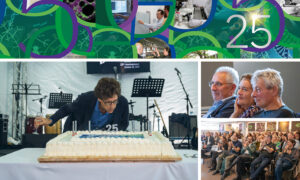
Exploring Nexus Island
Learn more about the game-based workshop that lets participants experience what it feels like to be a researcher on the TREC expedition

By Michele Fontana, Outreach & Public Engagement Officer
Imagine you live on an island, exploring the organisms living there and examining how they interact in the ecosystem. Suddenly, the island is affected by an extreme event. Now you have to assess the implications of this for the island’s organisms and recommend actions to the island’s government to remedy the situation.
Sounds exciting? Well, this is what the Nexus Island workshop expeditioners will have to face when they participate in this activity organised alongside the Traversing European Coastlines (TREC) expedition.
The TREC expedition is the first time researchers from across Europe are studying life at all biological scales, along the entire European coast. The aim is to produce new knowledge and discoveries that will help to provide our societies, governments, and regulatory agencies with the ability to best predict the possible impacts of environmental changes.
In parallel to the expedition, a rich and diverse programme of public engagement activities has been designed and is currently being delivered at many of the TREC stops. These activities foster curiosity and provide accessible ways to connect with TREC science and researchers. Gaining a better understanding of what researchers do fosters trust in science, its methods, and its results.
One of these activities is Nexus Island, which has been designed around the question – how can we make people experience how it feels to be a researcher, and specifically, a researcher on the TREC expedition?
The answer takes the shape of a game. Nexus Island is a game-based workshop focused on planetary health. Like the citizens exploring their surroundings, participants discover and research organisms inhabiting the island they live on. The exercises foster an exploration of the individual experiences, memories, and knowledge and reflect on the game’s impact in influencing their ideas and perceptions of science.

The island is portrayed on a walkable 4 x 4 metres map, which has augmented reality (AR) triggers to enable participants to visualise different organisms in four parts of the island. The activity tries to bring the participants closer to what TREC scientists do: explore a location, collect and study its organisms, and ultimately gain an understanding of the ecologies of such a location.
Nexus Island has been presented in seven countries so far (France, Netherlands, Denmark, Poland, Estonia, Finland, Germany) and will be presented in another 10 across Europe. At each location, the activity is typically done in the local language, thanks to the collaboration with local partners. The activity has been designed in collaboration with researchers involved in the TREC expedition and EMBL’s Science Education & Public Engagement (SEPE) team, and is facilitated by local researchers, who interact directly with the participants.
Nexus Island is only one of the outreach activities that have been designed to actively engage the European citizens with TREC and its science. Other activities include a travelling exhibit stand that focuses on microscopy, a series of informal events in pubs and public spaces where people have a chance to directly engage with the TREC researchers and its partners, and guided tours that offer the opportunity to visit the Mobile Experimental Lab, and an educational resource package for classroom use. With these activities, EMBL aims to continue to engage European citizens, bringing them closer to science and raising awareness of the importance of coastal ecosystems.


